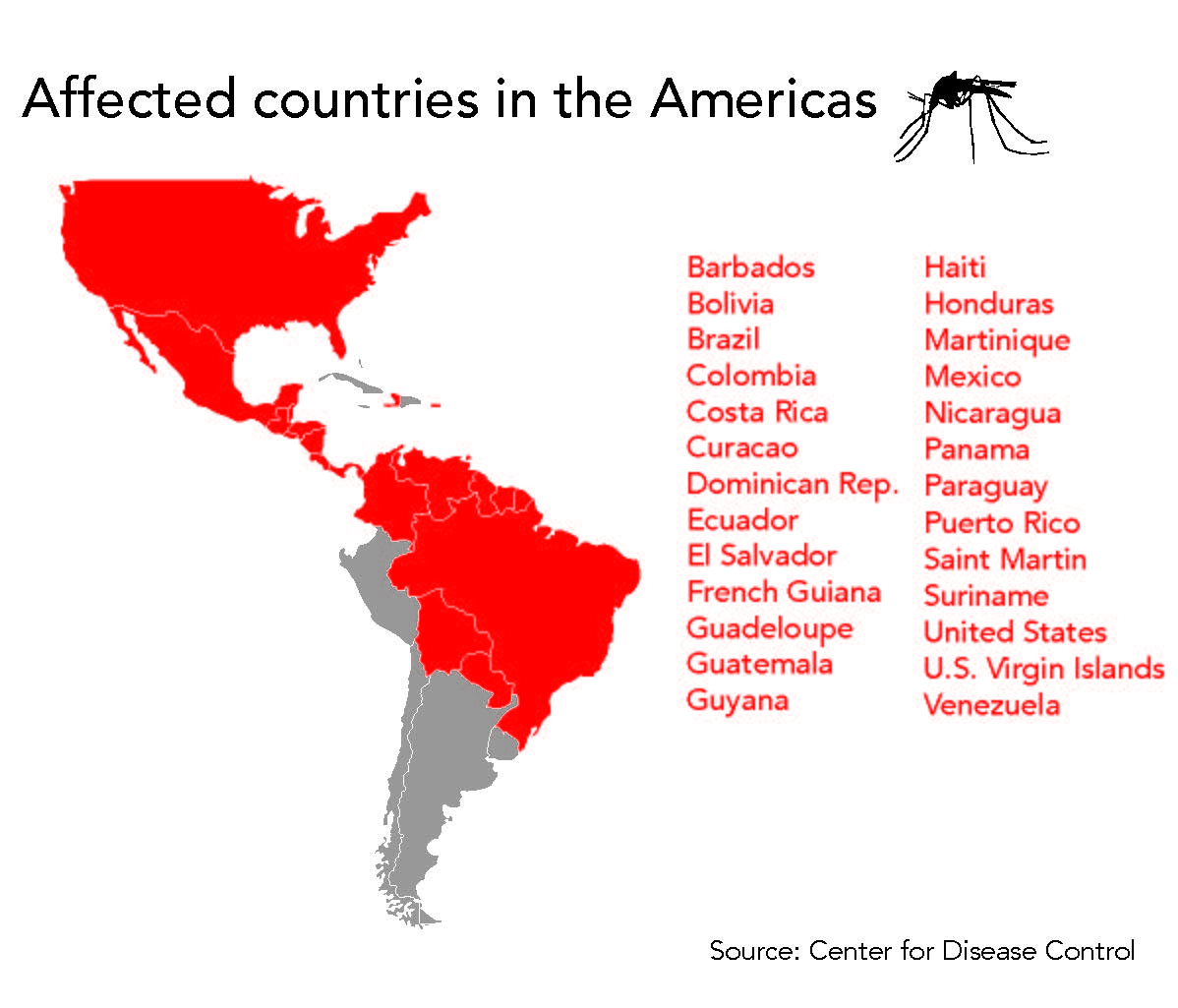![]()
The World Health Organization has declared a global health emergency concerning the rapidly spreading Zika virus. So far, more than 20 countries in the Americas have been affected, including several states in the Unites States. The Center for Disease Control confirmed on Tuesday that the first sexually transmitted case of the virus was diagnosed in Dallas County, Texas.
The emergency classification of Zika puts the virus in the same category of concern as Ebola, according to the BBC. The virus is suspected of causing brain defects in infants, posing the biggest threat to pregnant women.
The Zika virus is a mosquito-borne illness caused by a bite from an infected mosquito or sexual contact with an infected person. Thousands of cases have been reported in more than 20 countries, Brazil seeing the worst of the outbreak with more than 1 million reported cases. The symptoms of the virus usually include fever, joint pains, inflammation and swelling of the hands and feet.
With Zika spreading rapidly and no cure available, affected countries such as Colombia, Jamaica and Honduras have encouraged women not to get pregnant until further research is
conducted.
However, this advice is not reasonable for many. While in the interest of citizens’ best health, avoiding preganancy is not an option for women who have no access to, or are against, contraception. Some have been trying for years to have children and do not plan on giving up now. Others, in accordance with the Roman Catholic Church, do not endorse contraception.
“You have to take a lot of preventative measures,” Juan Carlos Rodriguez, resident director of the townhouses, said about choosing to have a child.
Rodriguez is from El Salvador, along with his wife, who is six months pregnant with their baby, Emma. The couple visited the country this past summer, and took precautions against mosquitos, which are known to carry other viruses such as chikungunya, yellow fever and dengue.
However, they know that it will be harder for lower income families to gain access to protection.
Rodriguez considered that the suggestion to limit pregnancies could be an attempt by the
government to control population.
“We’re a super populated country,” Rodriguez explained about El Salvador. “Economically,
it makes sense.”
Rodriguez said the government warning was good, but stronger precautions need to be taken so that those who may not be able to control pregnancies do not become overwhelmed or turn to abortion.
There is no known vaccine or cure specifically for the Zika virus, but according to the Brazilian Health Ministry, “80 percent of those who catch Zika have shown no symptoms” and recover from the virus relatively quickly. National governments and health organizations are taking measures to fight the virus, but what has health officials worried is how the contracted virus has seemingly affected pregnant mothers and their newborns.
Reports show that approximately 4,000 cases of Zika have potentially caused infants to develop microephaly within the last year throughout Brazil. Microephaly hinders brain development, which leads to symptoms including smaller, underdeveloped skulls and permanent brain damage.
Melissa Mitchell, Audio Visual Lighting coordinator at John Brown University, recently went with her husband for a healthy 11-week checkup on their expected fifth child. When asked whether an outbreak of equal magnitude in the U.S. would have affected their choice to get pregnant, Mitchell responded that she would not want to do something that would put her baby at risk of not being as healthy or safe as her older children.
On the other hand, Mitchell said babies are a gift from God.
“No matter when they come, how they come, they’re a gift.”
To limit chances of contracting Zika virus, people are encouraged to wear insect repellant and long clothing that covers the skin, especially during the morning and late afternoon times.





